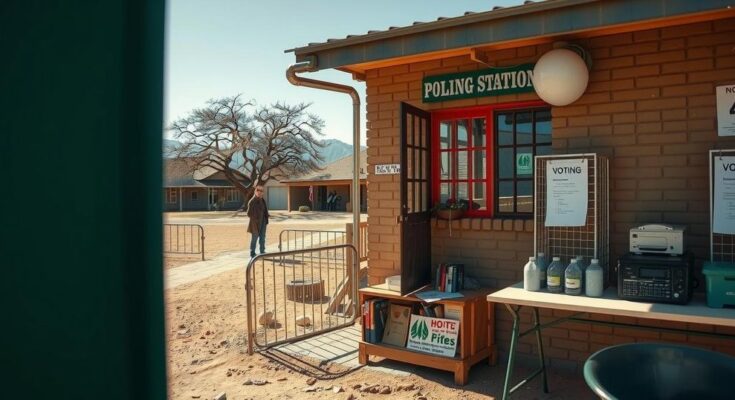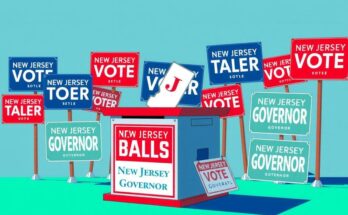Namibia’s electoral commission has extended voting in the presidential and parliamentary elections due to ballot paper shortages, leading to opposition claims of illegality and potential fraud. This decision comes amid heightened tensions and dissatisfaction with long-standing economic inequalities and governance. The elections are crucial, with 1.4 million registered voters shaping the future of the country.
WINDHOEK, Namibia — Namibia’s electoral commission has announced an extension for voting in the presidential and parliamentary elections, now taking place this weekend due to significant shortages of ballot papers. The decision has faced pushback from the opposition, particularly the Independent Patriots for Change party, which has labeled the move as illegal and indicative of potential electoral fraud. This situation has echoed wider issues within southern Africa, notably Mozambique’s recent electoral unrest, igniting concerns about electoral integrity in the region.
The electoral issues in Namibia highlight growing discontent within a youthful electorate, frustrated by unemployment and economic disparity in a resource-rich nation. Vice President Netumbo Nandi-Ndaitwah represents the ruling SWAPO party, which has dominated Namibian politics since independence in 1990. If successful, she could make history as Namibia’s first female president. However, her party’s long-standing governance is increasingly scrutinized against growing demands for change.
As many polling stations experienced long queues and delays in ballot paper delivery, many voters expressed their frustration. Elsie Nghikembua, the chairperson of the Electoral Commission of Namibia, acknowledged that logistical challenges contributed to the inability of many citizens to vote. Amidst assurances from officials that ballots were on their way, uncertainty loomed as registered voters like Nangombe Shitaleni conveyed their exasperation, stating, “I keep coming to the same place every day without being assisted. It’s like you are a mad person.”
Namibia’s elections are significant, with approximately 1.4 million registered voters expected to make critical decisions regarding the nation’s leadership for the next five years. Despite earning a reputation for stable democracy in the region, persistent socio-economic inequalities pose challenges that could influence voter sentiment and outcomes in favor of political change.
Namibia has a complex political history, previously a German colony and then under South African administration, subjecting its Black majority to various apartheid policies. Since achieving independence in 1990, the SWAPO party has maintained political dominance, having won every election thereafter. High unemployment and economic hardships challenge the narrative of progress in an otherwise mineral-rich country. Political unrest and dissatisfaction among the youth reflect a broader trend in southern Africa, where populations are increasingly rejecting long-standing ruling parties in search of new solutions to contemporary socio-economic issues.
The extension of voting in Namibia’s elections underscores not only logistical challenges but also deeper societal frustrations regarding governance. The opposition’s claims of illegitimacy and the widespread demand for change reflect a pivotal moment in Namibian politics. As the electoral landscape evolves, the responses from the electorate may redefine old political dynamics in favor of a more representative and responsive government.
Original Source: abcnews.go.com




